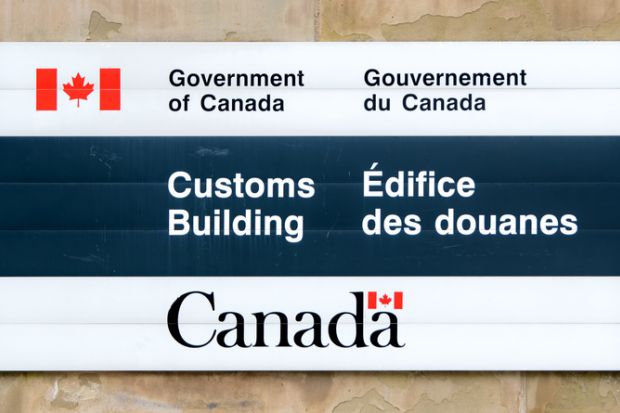Canadian provinces last year blocked 12 post-secondary institutions from hosting international students, typically from India, because they had unusually large numbers of students not coming to classes or applying for asylum.
The two institutions with the largest share of overseas students apparently not meeting visa expectations were Eastview College and the Academy of Learning College, both small private vocational institutions based in Ontario, and both with about 95 per cent of their students recorded as being out of compliance.
By comparison, the nationwide non-compliance average, in a higher education system dominated by public institutions, is about 7 per cent of students, according to government figures.
The federal department that handles such matters – Immigration, Refugees and Citizenship Canada (IRCC) – produced the figures at the request of Richard Kurland, an immigration lawyer and policy analyst who suggested that such institutions on the nation’s educational periphery may be part of larger operations that help foreigners circumvent Canadian visa rules.
India accounted for the large majority of apparent violations at seven of the eight Canadian post-secondary institutions with the highest percentages of non-compliance on visa terms, according to the IRCC figures secured by Mr Kurland. The institutions enrol between about 100 and several hundred students apiece, and each had visa non-compliance rates representing about half or more of their student bodies.
“The IRCC suggests roots in India, with the branches here in Canada – a lot of people making a lot of money,” Mr Kurland said.
The discovery comes as Canada faces a reckoning with its longstanding reliance on international students to help cover the costs of its higher education system. Foreign student enrolment in Canada has increased at least 10 per cent annually in recent years, while the numbers of domestic students have started to decline, forcing the nation toward fundamental decisions about how it will try to manage those trends, and under what terms.
An IRCC spokesman said the agency could not assess whether the visa violation problem has been persisting over years, because the data it supplied to Mr Kurland “represented the first time IRCC developed that type of report with these statistics”.
The IRCC also has no direct enforcement powers over such behaviours by post-secondary institutions – often involving small companies that offer job-specific training – because provincial education ministries hold the regulatory power over such institutions, said the agency spokesman. The 12 institutions made ineligible for new student visas, he said, were penalised by their provinces, which in most cases was Ontario, the nation’s largest by population.
The spokesman also suggested situations in which the data might overstate the size of the problem or the culpability of institutions, such as students offering fraudulent paperwork or switching institutions within Canada faster than the IRCC systems could track the update. The data provided to Mr Kurland would “not necessarily be a reflection on a particular institution”, he said.
But Mr Kurland argued that the size of the problem – with huge majorities of the student body at some institutions apparently out of compliance with their visa terms – suggested that more needed to be done by the federal government.
One important step, he said, would be for the federal government to keep its promises to create an independent watchdog authority to assess the Canada Border Services Agency, which is intended to work with the IRCC to enforce the nation’s immigration laws.
“The data suggest that the major players in Canada’s immigration sector are playing by the rules, but it is clear there are a few bad apples,” Mr Kurland said. “Someone should consider prosecuting what appears to be an organised abuse of Canada’s immigration programme.”




